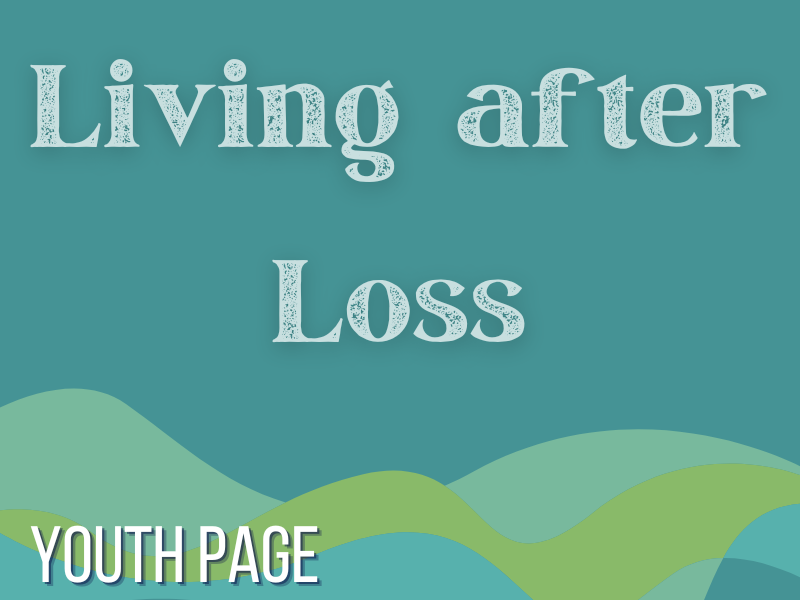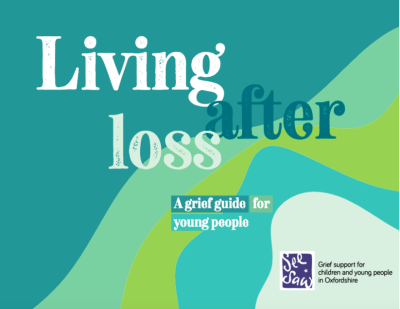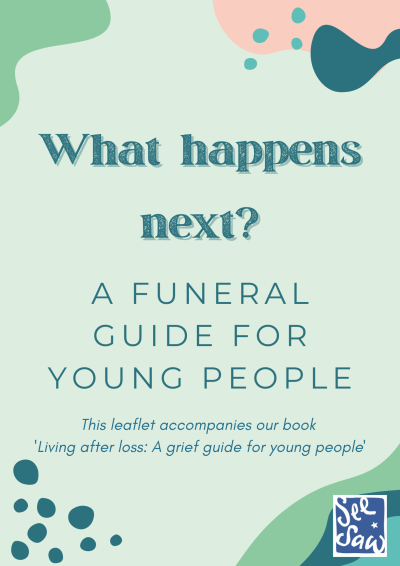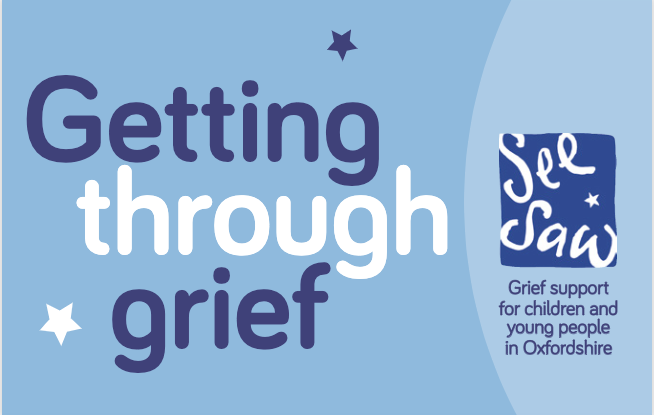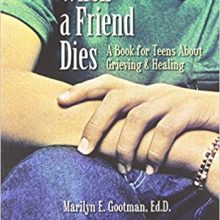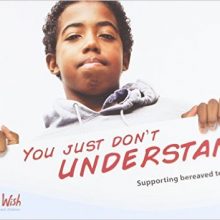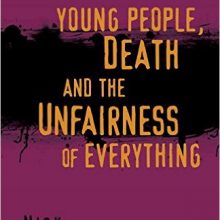Supporting bereaved adolescents

Common Grief Reactions In Adolescents
Behavioural Reactions
- Pushing themselves harder to achieve
- Being the ‘good’ child
- Stepping into role of parent who has died
- Harmful or risk-taking behaviours
- Skipping school
- Withdrawal from family and friends
- Loss of interest in regular activities
- Mood swings
- Aggression
Physical Reactions
- Real or imagined aches and pains, especially headaches and stomach aches
- Symptoms that mirror those of person who died
- Difficulty sleeping
- Change in appetite
- Difficulty with concentration and organisation (absentmindedness and forgetfulness)
How Adults Can Help
There are no magic remedies or time limits for grief. However, there are lots of things that we can do to support them through their bereavement at a time in their lives when there may already be a good deal of confusion, anxiety, emotional ups and downs, reluctance to show vulnerability and a search for a sense of identity:
Validation
- Reassure them that everything they feel is valid and that nobody will judge their grief reactions.
- Teach them that, because we are all unique individuals with enormous differences in our genetic make up, brain functioning, support networks and life experiences, there is no right or wrong way to feel or to react to the death of a loved one.
- Let them know that their grief is just as important as everybody else’s.
- Support them to grieve in their own way and to come to their own conclusions, thoughts and beliefs about what happens after death.
Honesty
- Young people should be told the truth about the circumstances of the death, even when adults feel the facts are too distressing for them to hear.
- Be honest and open with information aimed at their level of understanding and allow plenty of time for their questions.
- This will help to build and strengthen their trust and prevent them from imagining scenarios and events that are far worse than the truth.
Communication
- Young people may feel that they do not want to talk about their feelings of grief or show their emotions to family and friends.
- Respect this reaction, especially in the early days.
- Let them know that you are there to listen when they are ready to talk.
- Alternatively, they may feel their thoughts are too extreme to discuss with the people closest to them in which case they would benefit from contact with another trusted adult such as a teacher or a grief practitioner.
- If they choose to talk to you about how they are feeling, listen without interrupting, or attempting to make them feel better.
- If they ask for your opinion, give it openly and with honesty but do not offer unsolicited advice.
Choices
- At a time when much of their life feels out of control, allow them as many appropriate choices as circumstances allow. For example, they may want to see the person who has died or be involved in decisions about goodbye rituals and ceremonies.
- Where there are events, activities or special days, allow your teen to choose how they wish to manage things.
- Do not assume that they do or do not want to attend or be involved. For example, if there is a parent and child activity such as a ‘dads & lads’ sports game at school – is there an uncle, grandfather or close friend they would be happy to ask, or would they prefer not to participate?
Expectations and Boundaries
- Make it clear that normal boundaries concerning behaviours remain firmly in place.
- Not only does this set clear expectations for young people at a time when life may feel chaotic, it also helps them to understand that your job to keep them safe is still important to you.
- This will help them to feel secure which, in turn, facilitates regulation of their emotions.
- Be understanding and empathetic to any difficulties with concentration and organisation.
- With the young person’s agreement, speak to the relevant staff within their school to inform them of the circumstances and to discuss work expectations, flexibility and deadlines where necessary.
Modelled Grief and Self Care
- Model grieving by allowing them to see your own appropriate reactions alongside your ability to continue with everyday tasks.
- Encourage them to take care of their mental and physical health and make sure that you do the same.
- Support them to continue with their regular sport or creative activities which will also help with emotional regulation and provide an outlet for challenging emotions and stress.
- If you find that you need some extra support with your grief, there are organisations that you can contact for help such as Cruse.
Self Regulation
- Help them to find self-regulation strategies that will help them to manage any immediate emotional and physical symptoms of grief.
- Used regularly, these strategies also help reduce anxiety levels and sleep disturbance.
- They also help with building resilience and tolerance to future life challenges.
Memory Making
- It is important that they feel able to remember the person who has died.
- At SeeSaw, we can advise or support you with continuing bonds work.
- We can signpost you to appropriate techniques and resources to ensure that memories are recorded and preserved in safe and creative ways.
Seeking Help
Over time, most young people find ways to cope with the death of a friend or family member. However, if you are concerned that your teen is feeling overwhelmed by their emotions or that their grief reactions are extreme or persistent, speak to your GP for advice and support.
Youth Page
Resources
Suggested Readings
A Monster Calls
by Patrick Ness
Thirteen-year-old Conor awakens one night to find a monster outside his bedroom window, but not the one from the recurring nightmare that began when his mother became ill–an ancient, wild creature that wants him to face truth and loss.
Sometimes Life Sucks
by Molly Carlile
Whether it’s the death of a grandparent, pet or school friend, a teen fatality, a peer with terminal illness, living without a mum or dad, or the death of a celebrity, like everyone else teenagers also struggle to come to terms with their shock and grief.
When a friend dies
by Dr Marilyn E Gootman
The death of a friend is a wrenching event for anyone at any age. Teenagers especially need help coping with this painful loss. This sensitive book answers questions grieving teens often have, like “How should I be acting?” “Is it wrong to go to parties and have fun?” and “What if I can’t handle my grief on my own?”The advice is gentle, non-preachy, and compassionate; the author has seen her own children suffer from the death of a friend, and she knows what teens go through. The revised edition includes new quotes from teens, new resources, and new insights into losing a friend through violence. Also recommended for parents and teachers of teens who have experienced a painful loss.
You just don’t understand: supporting bereaved teenagers
by Helen Mackinnon, Winston’s Wish publication
The transition from childhood to adulthood can be a challenging process at the best of times. This booklet aims to help you understand what is normal adolescent development, and to recognise the additional problems teenagers may face if someone important dies during these years.
Young people, death and the unfairness of everything
by Nick Luxmoore
Without opportunities to talk, young people’s anxieties about death can manifest themselves in all sorts of self-destructive and socially-destructive ways. In this book, Nick Luxmoore explores the problems that arise when death is not openly discussed with young people and offers advice about how best to allay concerns without having to pretend that there are easy answers.





